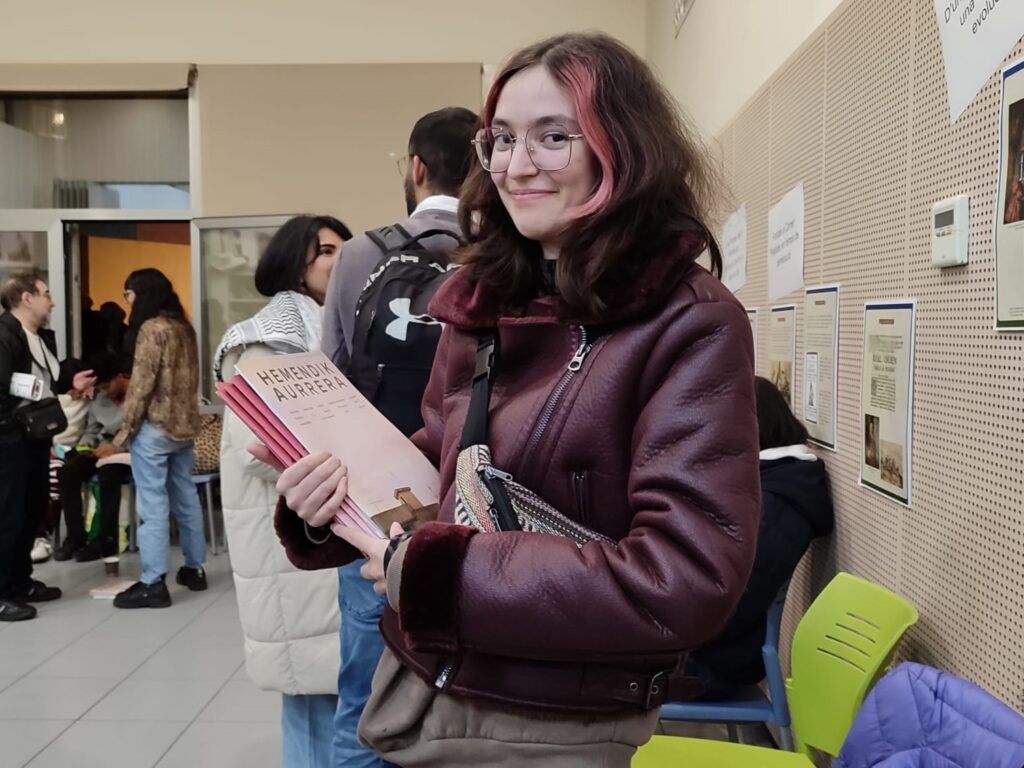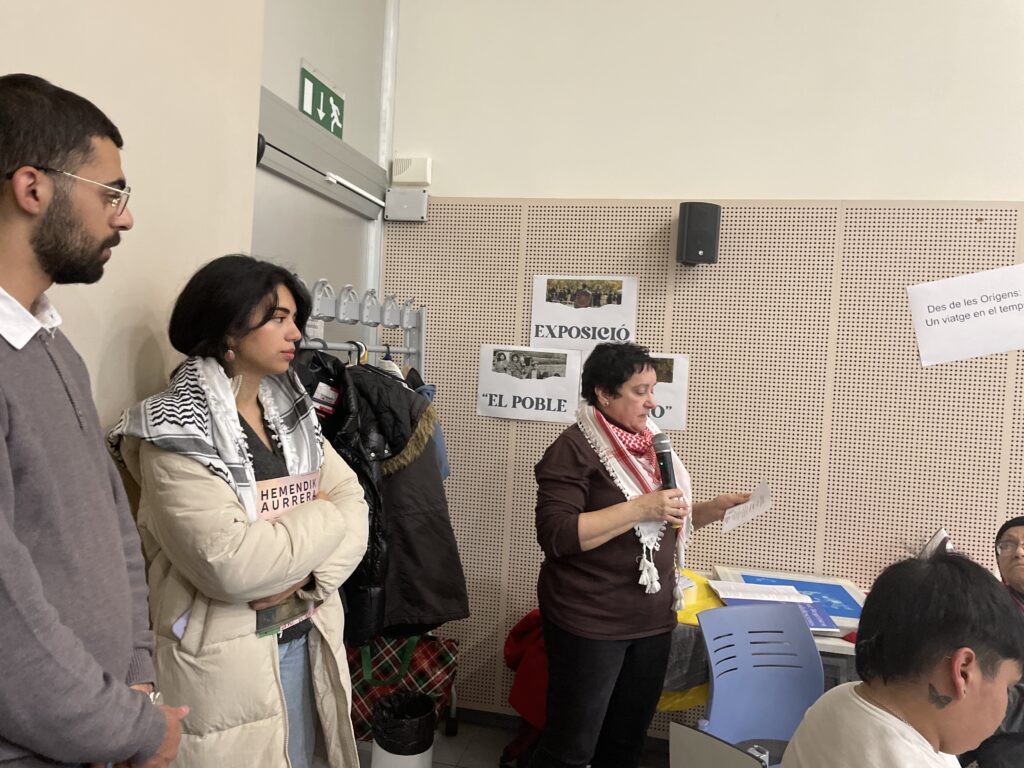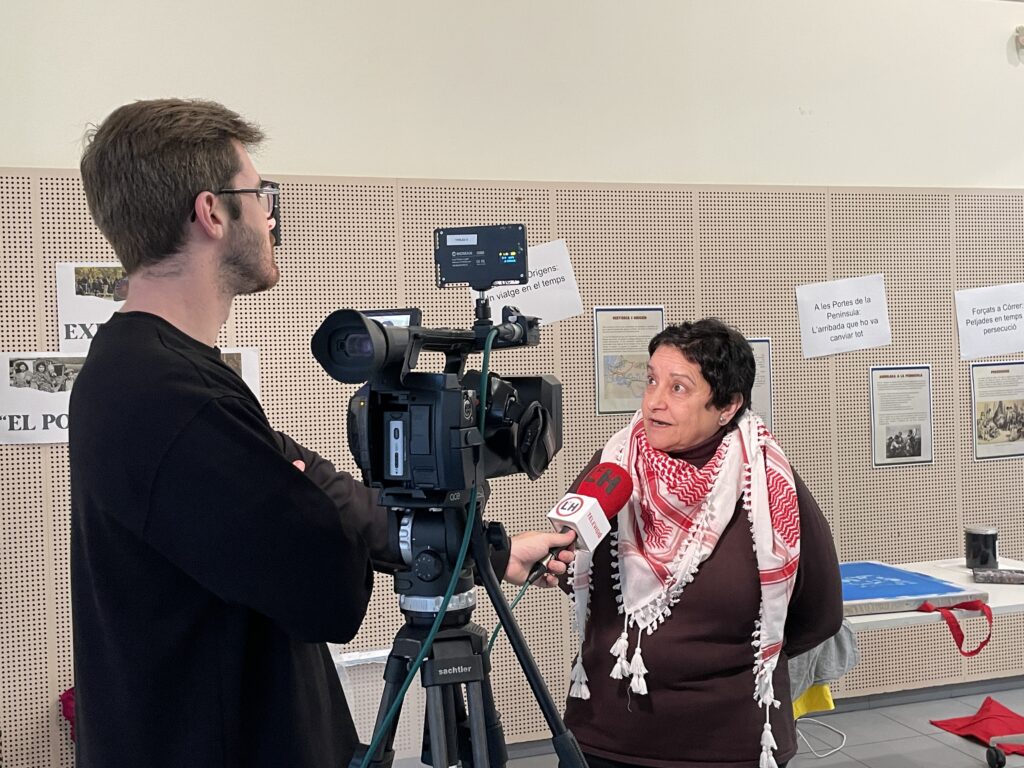

This new issue is packed with content: about homelessness, speculation in the city, immigration detention centers (CIE) and deportations, La Florida market, the right to the city, and, among many other topics, an interview with Zaina, a young Palestinian woman who has come to Barcelona through the UB’s university assistance program. As always, the magazines are free and you can pick up your copy at Pomezia (c. Pins, 10, La Florida).
L’Hdigital did a report on the presentation, available here.
Here is the editorial text that opens the magazine, written by the Editorial Team Des de Ja. Thank you all for coming and long live neighborhood magazines!
******************************
This is the tenth issue of Des de ja magazine. If we stop to think about it, it seems somewhat miraculous. Well, maybe we’re exaggerating, but it’s true that very few people imagined in 2018, when we presented the first issue of Des de ja, that today, in 2025, we would be presenting number ten.
It is still surprising, even for ourselves, to have gotten this far. And not only in terms of quantity, but also quality. Des de ja has grown and improved in these ten issues. It is not a perfect publication, we know, but we have strived to improve it in each issue, and it shows, yes, we can believe it.
The best thing of all is that the spirit and purpose of the magazine remains the same: a magazine made with love by the residents of La Florida—and now, of all Hospitalet and beyond—with the aim of telling what happens and what happens to us from here, from the neighborhood. Telling our stories so that others don’t tell them for us. Explaining what we see and experience here and in the world from the neighborhood so that other people do not impose a partial and self-serving explanation on us from other places.
In these six years, many things have happened, in the neighborhood and in the world. Many of them are worrying, especially the rise of reactionary discourses and attitudes that do nothing but give carte blanche to the oppression, discrimination, and exclusion of people whose lives are considered less valuable than those of others.
Reversing this trend inevitably involves getting together, explaining the world to each other, and organizing ourselves. From divergence, dissent, and even conflict. Conflict has a very bad reputation, and yet it is essential; without conflict, stories do not advance, their plot stagnates. What happens is that conflict is often associated with violence because, unfortunately, human beings resort to it again and again to resolve conflicts. It sounds naive to write it, but no less true is that we have other tools to resolve conflicts, such as words, for example. This magazine is made of words, among other things.
One of the most exciting things about publishing this tenth issue of the magazine is having the certainty that it is not a perfect magazine. In these years, good things have also happened and we have built them, in the neighborhood and in the world, and sometimes—we recently made self-criticism about this—we have not known how to tell them, make them more visible. This is something we can improve. And precisely, that certainty that we can do it better, or differently, as appropriate or as we please, also causes us a happy feeling, a feeling that results from the deep conviction that we have the power to do things differently, that we have taken that power. Because power is neither given nor taken away, power, also the power to tell, is taken, from here and from now.


